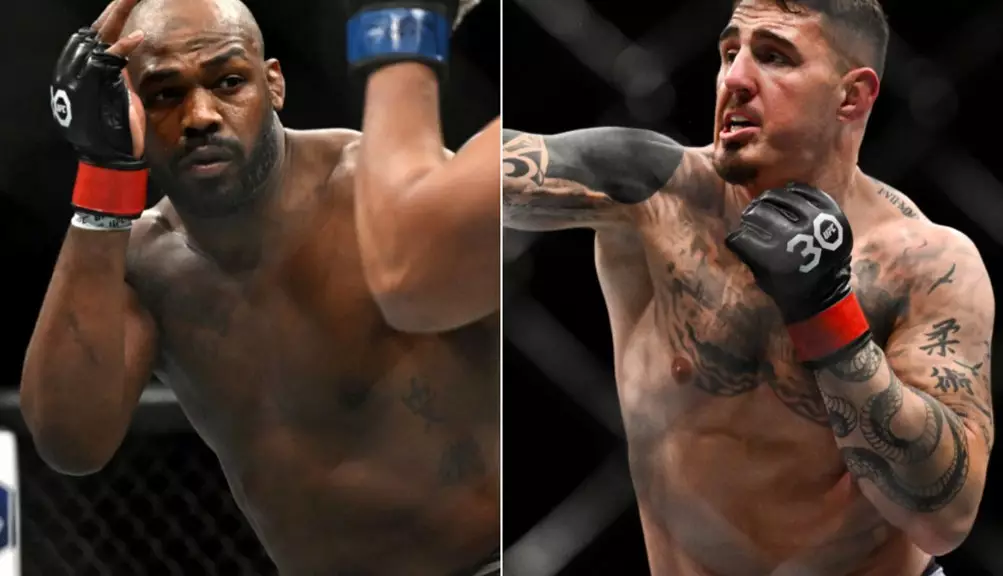In the realm of mixed martial arts, few names resonate as strongly as Jon Jones. As the CEO of UFC, Dana White remains a pivotal figure in steering the narratives surrounding its biggest stars, and his recent comments about Jones’ career trajectory provide a glimpse into their complex relationship. Following Jones’ upcoming matchup against Stipe Miocic at UFC 309, White has categorically dismissed the notion of a legacy showdown with Alex Pereira, suggesting that the only feasible next fight for Jones, should he continue his career post-UFC 309, is against Tom Aspinall.
White’s skepticism of the Pereira matchup stems from a blend of practical assessment and business acumen. Pereira, having transitioned from middleweight to light heavyweight, lacks the wrestling pedigree that Jones possesses in abundance. As White pointedly articulated during an appearance on “The Jim Rome Show,” Pereira’s striking-focused background does not align with the more well-rounded skill set displayed by Jones. This leaves little room for speculation; according to White, the fight that makes the most sense is between Jones and Aspinall, a fighter who has emerged as a significant contender in the heavyweight division.
Jon Jones: A Legacy in the Making
Jones’ storied career is marked not only by his remarkable skill set but also by the dense cloud of controversy that surrounds him. He owns a record that many argue cements his status as the greatest MMA athlete of all time. Despite only one official loss — a disqualification that occurred over a decade ago — the specter of additional challenges looms. With Jones hinting at the possibility of retirement, fans are left in suspense regarding the next chapter of his storied career.
What complicates matters further is Jones’ own interest in pursuing a matchup against Pereira, which he believes aligns better with his legacy and business interests. The dynamic between legacy and financial gains is a persistent theme in combat sports, and as fighters negotiate their future, the interests of promoters like White often clash with the aspirations of athletes.
The Implications of Jones’ Decision
As the UFC landscape evolves, Jon Jones stands at a critical crossroads. A victory against Miocic would solidify his status further, but the way forward is fraught with uncertainty. Jones must weigh the lure of lucrative bouts against the ambition of crafting a lasting legacy. If he sidesteps a showdown with Aspinall in favor of pursuing a more financially enticing fight with Pereira, he may alienate certain segments of the fan base and legacy-conscious pundits.
White’s confidence in Jones returning to fight again indicates an understanding of the competitive drive that defines top-tier athletes. He suggests that Jones’ competitive spirit is likely to resurface, propelling him back into the octagon in some capacity. Ultimately, whether Jon Jones chooses to step away or engage with another contender will not only affect his career but also have ramifications for the UFC’s heavyweight landscape and its drawing power.
In the end, while Dana White seems resolute about envisioning Jon Jones’ future, the reality remains that fighters are fiercely independent individuals, often swayed by personal motives and circumstances. As UFC 309 approaches, the stakes are incredibly high, and decisions made in the aftermath could reverberate throughout the MMA community for years to come. Both White and Jones are navigating a complex web of legacy, ambition, and marketability — one that will undoubtedly shape the future of the UFC.

